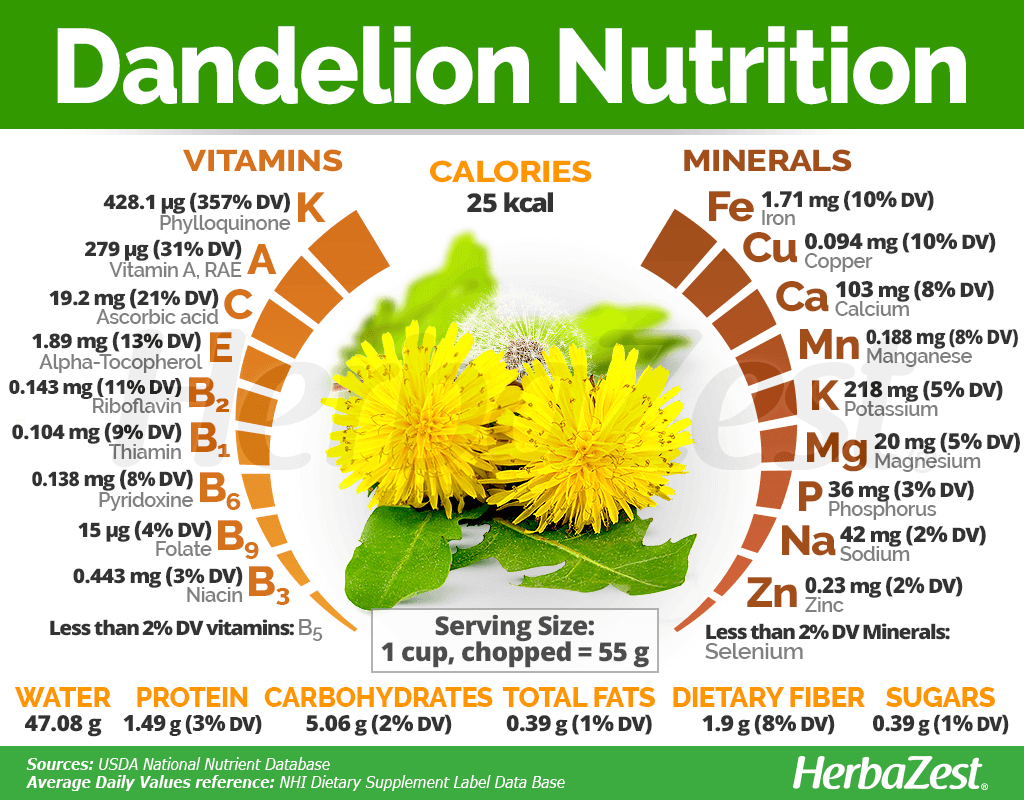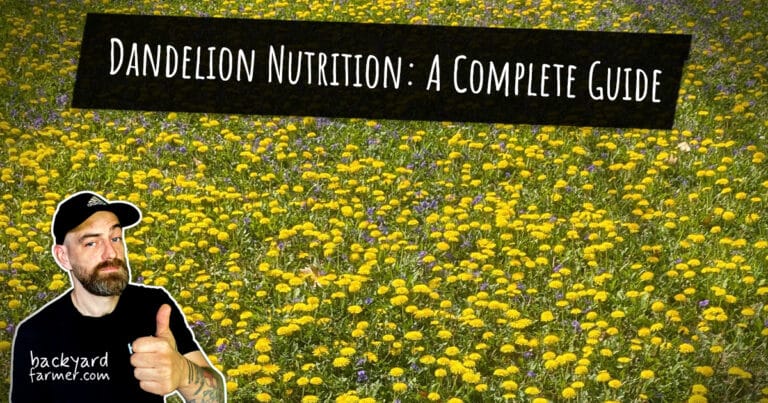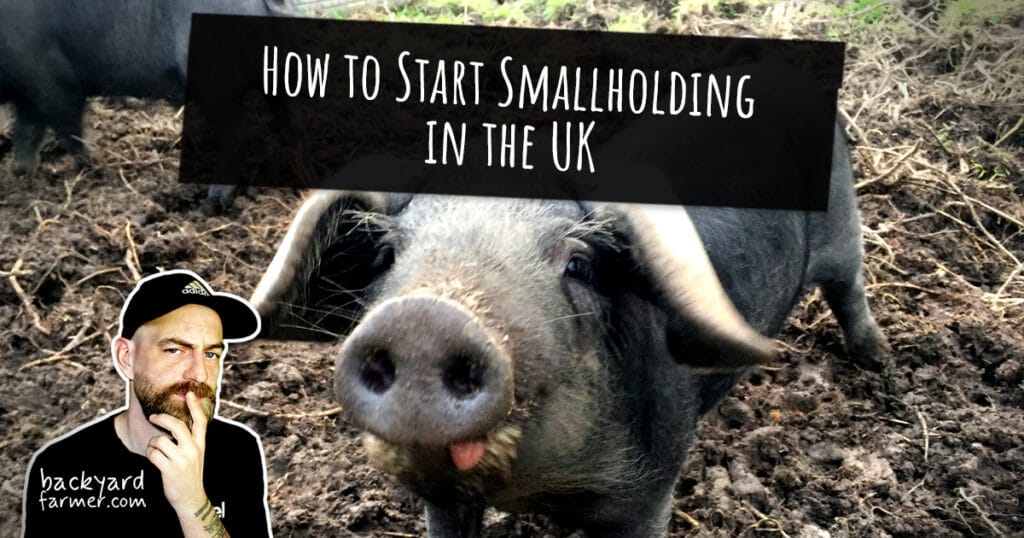Introduction: Dandelion Nutrition
Did you know that the humble dandelion, often dismissed as a pesky weed, has more vitamin K than kale? Used for centuries in traditional medicine and now supported by modern science, dandelions are nutrient-rich plants with impressive health benefits and versatile culinary uses.
They are packed with vitamins, minerals, and unique compounds, making them a great addition to your diet and wellness routine.
In this article, we will dive into the world of dandelion nutrition and look at their health benefits and practical uses. Specifically, we will cover:
- Liver health: How dandelions support detoxification and improve liver function.
- Digestive aid: Their prebiotic properties and role in gut health.
- Nutritional value: The vitamins, minerals, and antioxidants found in every part of the plant.
Dandelions are much more than a backyard weed. They are a sustainable superfood that can easily enhance a healthy lifestyle. With support from both tradition and science, they offer a unique way to nourish your body while benefiting the environment.
Whether you are a nutrition enthusiast, a foraging hobbyist, or someone curious about adding natural foods to your diet, this guide will give you all the information you need about dandelions. Keep reading to find out how this overlooked plant can improve your health and meals.
Nutritional Profile of Dandelion
What Makes Dandelions Nutritional Powerhouses?
Dandelions (Taraxacum officinale) are more than just weeds; they are nutrient-rich plants with incredible versatility. Every part of the dandelion—from its roots to its leaves and flowers—contains vitamins, minerals, and other compounds that support overall health. Let’s take a closer look at the nutritional value of this often-overlooked superfood.
Vitamins
Dandelion greens are a great source of essential vitamins:
- Vitamin A: This vitamin supports vision, boosts the immune system, and helps keep skin healthy. Just one cup of raw dandelion greens provides 31% of the Daily Value (DV).
- Vitamin C: As an antioxidant, vitamin C strengthens the immune system and improves skin health. A single serving offers 21% of the DV.
- Vitamin K: Essential for blood clotting and strong bones, dandelion greens deliver an impressive 357% of the DV per cup.
Minerals
Dandelion greens are full of important minerals:
- Calcium: This mineral is vital for strong bones and teeth, providing 10% of the DV per serving.
- Iron: Iron helps produce red blood cells and contributes 10% of the DV.
- Magnesium: Magnesium is key for muscle and nerve function, offering 5% of the DV.
- Potassium: Potassium supports blood pressure regulation and provides 5% of the DV.
Macronutrients
Dandelion greens also provide key macronutrients that benefit your health:
- Protein: While present in small amounts, the plant-based protein in dandelion greens is still valuable.
- Fiber: With 1.9 grams per cup, fiber in dandelion greens supports digestion and promotes gut health.
Unique Compounds
Beyond vitamins and minerals, dandelions contain unique compounds that offer health benefits:
- Beta-carotene and Lutein: These antioxidants protect against oxidative stress and support eye health.
- Inulin: Found in dandelion roots, this prebiotic fiber nourishes beneficial gut bacteria.
- Taraxacin: This compound may improve liver health and assist with detoxification.

Did You Know?
Dandelion greens contain much more vitamin K than kale, making them an excellent choice for bone and blood health.
Comparative Nutritional Table
| Component | Dandelion Greens (per cup, 55g) | Role in Health |
|---|---|---|
| Vitamin A | 279.4 mcg (31% DV) | Vision and immune support |
| Vitamin C | 19.2 mg (21% DV) | Antioxidant and skin health |
| Vitamin K | 428.1 mcg (357% DV) | Blood clotting and bone health |
| Calcium | 103 mg (10% DV) | Bone and dental health |
| Iron | 1.7 mg (10% DV) | Red blood cell production |
| Magnesium | 20 mg (5% DV) | Muscle and nerve function |
| Potassium | 218 mg (5% DV) | Blood pressure regulation |
| Fiber | 1.9 g | Digestive and gut health |
Dandelions are a great choice for anyone looking to improve their diet with natural, wholesome foods. Whether you eat the greens, roots, or flowers, they provide a variety of health-boosting benefits.
Why not give dandelions a try? Add them to your next salad, smoothie, or soup and enjoy their amazing nutritional benefits. Keep reading to learn how to include dandelions in your meals and beyond!
Science-Backed Health Benefits of Dandelions
Health Benefits of Dandelion: What Science Says
Dandelions (Taraxacum officinale) are more than just nutritious plants; they offer a wide range of health benefits that are increasingly supported by research. While many benefits come from traditional uses, new studies are validating their potential.
Let’s explore these key health benefits:
1. Supports Liver Health
For centuries, people have used dandelions as a natural remedy to support liver health. Compounds like taraxacin and chlorogenic acid help stimulate bile production, which aids digestion and detoxification.
Early studies suggest these effects are promising, but more human research is needed to confirm how dandelions benefit liver function.
2. Improves Digestive Health
The inulin fiber found in dandelion roots acts as a prebiotic. This means it nourishes good bacteria in your gut, helping to improve overall digestion. Regularly eating dandelions may prevent constipation, support gut health, and enhance nutrient absorption.
However, much of the current evidence comes from animal or lab studies, so further human trials are needed.
3. Provides Anti-Inflammatory Effects
Dandelions contain compounds like flavonoids and polyphenols, which have strong anti-inflammatory properties. These compounds may help reduce inflammation related to arthritis, heart disease, and diabetes.
While lab studies are promising, human trials remain limited.
4. Acts as a Natural Diuretic
Dandelions have long been known to increase urine production, acting as a natural diuretic. This can help reduce water retention and improve kidney health. Unlike synthetic diuretics, dandelions are high in potassium, which helps maintain a healthy balance of electrolytes.
However, consuming too much may cause imbalances, especially for people with kidney problems.
5. Boosts Antioxidant Protection
Dandelions are rich in antioxidants like beta-carotene and lutein. These antioxidants neutralize free radicals, which cause oxidative stress. This protection may lower the risk of chronic diseases, including cancer, and also support skin and eye health.
More research is needed to fully understand the effects in humans.
6. Supports Weight Management
Dandelions are low in calories and high in fiber, making them a smart choice for weight management. Their prebiotic properties also support gut health, which plays an important role in maintaining a healthy metabolism.
However, dandelions work best as part of a balanced diet rather than a standalone solution.
7. May Have Anti-Cancer Properties
Preliminary studies suggest that dandelion root extract can trigger cell death (apoptosis) in certain cancer cells, including melanoma and pancreatic cancer cells. While these findings are promising, they mostly come from lab studies.
Clinical trials are needed to confirm these effects in humans.
Linking Benefits to Scientific Studies
- A 2017 study in Oncotarget showed that dandelion root extract could reduce pancreatic cancer cell growth.
- Research published in The Journal of Medicinal Food highlighted dandelions’ ability to support liver health and provide antioxidants.
- Studies on inulin, a fiber found in dandelion roots, revealed improvements in gut microbiota diversity and function.
Safety Considerations
While dandelions are safe for most people, it is important to understand possible risks:
- Allergic Reactions: If you are allergic to ragweed or similar plants, you may experience sensitivity.
- Medication Interactions: Dandelions can interact with diuretics, blood thinners, or diabetes medications. People with kidney issues should be cautious due to the high potassium content. Always consult your healthcare provider before adding dandelions to your diet in large amounts.
Did You Know?
Dandelions are naturally high in potassium, unlike synthetic diuretics that often deplete this essential mineral. This makes them a gentler option for supporting kidney health.
Dandelions provide a natural, science-supported way to improve your overall health. From helping your liver to aiding with weight management, they are a valuable addition to any balanced diet and sustainable lifestyle.
How to Use Dandelions for Nutrition
Incorporating Dandelions Into Your Diet
Dandelions are a versatile and nutrient-packed plant that you can easily add to your meals. Every part of the dandelion—from its leaves to its roots and flowers—provides unique flavors and valuable health benefits. Dandelion greens, for example, are rich in vitamins A, C, and K, as well as minerals like calcium and iron.
Whether you use them in raw salads, hearty soups, or soothing teas, dandelions offer endless ways to get creative in the kitchen.
1. Dandelion Leaves
- Raw in Salads: Add fresh dandelion greens to salads for a slightly bitter and peppery taste. To balance the flavor, pair them with sweet or tangy ingredients like citrus fruits, apples, or balsamic dressing.
- Cooked as Greens: Sauté the leaves with garlic, olive oil, and a pinch of salt to make a delicious side dish similar to spinach or kale.
- Smoothies: Blend young dandelion leaves into smoothies with fruits like bananas and berries to increase your intake of vitamins and minerals.
2. Dandelion Roots
- Dandelion Coffee: Roast the roots until they are dark and aromatic, then grind and brew them as a caffeine-free coffee alternative. This drink is high in prebiotic fiber and supports liver health.
- Dandelion Tea: Steep dried roots in hot water to create a detoxifying tea with a rich flavor.
- Soup Base: Chop dandelion roots and add them to soups or broths for an earthy flavor and an extra nutritional boost.
3. Dandelion Flowers
- Herbal Teas: Use fresh or dried flowers to brew a light, floral tea packed with antioxidants.
- Edible Garnishes: Sprinkle dandelion petals on salads, desserts, or baked goods to add color and nutrients.
- Syrups and Jams: Infuse the flowers into syrups or use them to make dandelion jelly, a sweet and floral treat.
Did You Know?
Young dandelion leaves are less bitter than mature ones, making them ideal for raw salads.
Recipes to Try
- Dandelion Salad Recipe: Combine fresh greens, sliced apples, walnuts, and a citrus vinaigrette for a refreshing, nutrient-rich dish.
- Roasted Dandelion Root Coffee: Wash and dry roots, roast them at 200°C (400°F) until golden brown, grind them, and brew like coffee.
- Dandelion Flower Syrup: Boil a handful of flowers with sugar and water, then strain and bottle the syrup to use in drinks and desserts.
Foraging and Safety Tips
- Harvesting: Pick dandelions from clean, pesticide-free areas away from roads and industrial zones.
- Preparation: Wash them thoroughly to remove dirt and contaminants before using.
- Seasonality: Harvest young leaves in spring for a milder taste. Roots are best collected in late fall when they are higher in inulin.
- Sustainable Foraging: Avoid overharvesting in one area to allow regrowth and maintain ecosystem balance.
- Allergy Awareness: If you are trying dandelions for the first time, start with small amounts to check for allergic reactions, especially if you are sensitive to plants like ragweed.
Dandelions are a sustainable and nutrient-rich ingredient that can transform your meals while providing numerous health benefits. With creativity and a willingness to explore, you can turn this humble plant into delicious and healthy dishes. What’s your favorite way to enjoy dandelions? Share your recipes or tips in the comments!
For more tips on incorporating fresh, nutrient-rich greens into your diet, check out our guide on How to Grow Leafy Vegetables at Home.
Environmental and Sustainability Benefits
Dandelions: A Sustainable Superfood
Beyond their impressive nutritional and health benefits, dandelions (Taraxacum officinale) play a vital role in supporting the environment and promoting sustainable living. Here’s how dandelions contribute to ecological balance and sustainability:
1. Supporting Pollinators
- Crucial for Bees and Butterflies: Dandelions are among the first flowering plants in spring, providing essential nectar and pollen when other blooms are scarce. This makes them invaluable for pollinators like bees and butterflies during early-season shortages.
- Enhancing Biodiversity: Allowing dandelions to grow in your yard or garden creates habitats that support diverse pollinating species, which are crucial for maintaining healthy ecosystems.
2. Low Environmental Impact
- No Cultivation Needed: Dandelions thrive naturally without requiring fertilizers, pesticides, or irrigation, making them an eco-friendly alternative to many cultivated crops.
- Adaptable Growth: These hardy plants grow almost anywhere—in meadows, urban spaces, and gardens—eliminating the need for land clearing or intensive farming practices.
- Chemical-Free Gardening: Their resilience reduces dependence on chemical interventions, making dandelions ideal for organic gardening.
3. Promoting Soil Health
- Natural Soil Aeration: Dandelion roots penetrate deep into compacted soil, improving aeration and water infiltration.
- Nutrient Recycling: The plant’s deep taproots draw essential nutrients like calcium and magnesium from the subsoil to the surface, enriching the topsoil for surrounding plants.
4. Easy to Grow at Home
- Low Maintenance: For gardeners, dandelions are a hassle-free addition to any organic garden, growing naturally without requiring special care.
- Reducing Environmental Footprints: Growing dandelions at home eliminates the environmental impact of transporting greens from farms to stores.
- Preventing Soil Erosion: Allowing dandelions to grow stabilizes soil and supports beneficial insect populations.
How Dandelions Align with Sustainable Living
- Zero Waste: Every part of the plant—from the roots to the flowers—is edible or usable, ensuring nothing goes to waste.
- Encouraging Self-Sufficiency: Dandelions support self-sufficient lifestyles by providing a readily available source of nutrition that doesn’t rely on commercial agriculture.
- Resilience to Climate Change: As adaptable plants, dandelions thrive in changing climates, offering a reliable food source where other crops may fail.
- Ecological Importance: Often mislabeled as weeds, dandelions enrich soil, foster biodiversity, and play a vital role in sustainable ecosystems.
Encouraging Dandelion Growth in Your Yard
- Allow patches of dandelions to grow naturally in your lawn or garden to support pollinators and improve soil health.
- Avoid using herbicides or pesticides, which can harm pollinators and beneficial insects.
- Educate your neighbors and community members about the ecological importance of dandelions to reduce stigma and promote understanding.
- Host workshops or share dandelion recipes to inspire others to embrace the plant’s ecological and nutritional value.
Dandelions are much more than a superfood—they are a cornerstone of ecological health and a symbol of sustainable living. By incorporating dandelions into your diet and allowing them to thrive in your environment, you take an active step toward a healthier planet and a more self-sufficient future.
To explore more about the nutritional value of edible wild plants, visit the NIH’s guide on Edible Wild Plants: Wild and Wonderful Foods.
Myths and Misconceptions
Are Dandelions Poisonous? And Other Questions Answered
Despite their nutritional and ecological benefits, dandelions (Taraxacum officinale) are often misunderstood. Myths and misconceptions have caused many people to overlook this remarkable plant. Here, we will debunk common myths and provide clarity based on scientific evidence.
1: Dandelions Are Poisonous
- The Truth: Dandelions are not poisonous and are safe for most people to eat. Every part of the plant—from the roots to the flowers—is edible and full of nutrients.
- Historical Use: Across various cultures, people have used dandelions as staples in herbal remedies and meals.
- Caveats: Some people allergic to plants like ragweed, marigold, or daisies may have mild reactions. If you’re trying dandelions for the first time, start with small amounts.
2: Dandelions Are Just Weeds
- The Truth: While often called weeds, dandelions are a nutrient-dense superfood with medicinal properties. They contain high levels of vitamins A, C, and K, as well as minerals like calcium and potassium. These nutrients make them valuable additions to your diet.
- Why the Stigma Exists: Because dandelions grow easily in tough conditions, they are often seen as invasive plants, which overshadows their many benefits.
3: Eating Dandelions Is Unsafe Due to Pesticides
- The Truth: The safety of dandelions depends on where you pick them. Dandelions from pesticide-free areas like organic gardens or untreated wild spaces are safe and nutritious.
- Tip: Always rinse dandelions well before eating to remove dirt and other contaminants. Avoid foraging near roadsides, industrial zones, or treated lawns to reduce exposure to pollutants.
4: Dandelions Have No Health Benefits
- The Truth: Scientific studies show that dandelions offer many health benefits, such as antioxidants, anti-inflammatory effects, and liver support. Their nutrients help fight free radicals and improve overall wellness.
- Evidence: Research highlights their traditional use for better digestion, liver health, and immune function, now backed by modern science.
5: Dandelions Are Only for Animals
- The Truth: While dandelions are great forage plants for animals like rabbits and tortoises, they are just as beneficial for humans. Their versatility makes them useful in teas, salads, herbal remedies, and even as coffee substitutes.
- Creative Use: Add dandelion greens to salads or roast the roots to create a flavorful, caffeine-free coffee alternative.
Common Questions About Dandelions
Yes, dandelions can interact with diuretics, blood thinners, or medications for diabetes. Always ask a healthcare provider before adding them to your diet in large amounts.
Yes, dandelions are safe for children if harvested from clean, pesticide-free areas. They can make a fun and healthy addition to family meals.
Most pets, including dogs, rabbits, and guinea pigs, can safely eat dandelions in moderation. However, check with your vet if your pet has special dietary needs.
Did You Know?
Dandelions have been used in traditional herbal medicine for centuries to support liver and digestive health. Their roots are especially rich in inulin, a prebiotic fiber that feeds good gut bacteria.
Why It’s Important to Address These Myths
Debunking myths about dandelions changes how we see this misunderstood plant. Instead of dismissing it, we can view it as a valuable resource for both nutrition and sustainability. By learning the truth, we can better appreciate dandelions’ role in health and the environment.
Why not add dandelions to your meals or grow them in your garden? Share your favorite dandelion recipes or foraging tips in the comments and encourage others to embrace this amazing plant!
Why You Should Consider Dandelions in Your Diet
Dandelions, often underestimated and dismissed as simple weeds, are actually a powerhouse of nutrition and sustainability. By incorporating dandelions into your lifestyle, you unlock their rich nutritional profile while actively contributing to a healthier environment and a more sustainable way of living.
Key Takeaways
- Nutritional Benefits: Dandelion greens are packed with vitamins A, C, and K, with vitamin K playing a critical role in blood clotting and bone health. They also provide essential minerals like calcium, potassium, and iron, making them a valuable addition to any diet.
- Health Support: Dandelions are loaded with antioxidants and anti-inflammatory compounds such as polyphenols. These compounds combat oxidative stress, support liver function, improve digestion, and promote overall wellness.
- Sustainability: Thriving naturally without the need for fertilizers or pesticides, dandelions are an eco-friendly food source. Their ability to grow in diverse climates makes them a resilient and sustainable choice for environmentally conscious living.
- Versatility: Dandelions can enhance your meals in countless ways. Use them in salads, teas, coffee substitutes, and even desserts. Roasting their roots creates a rich, caffeine-free coffee alternative with a delightful earthy flavor.
Did You Know?
Dandelion roots are being researched as a sustainable source of natural rubber, highlighting their potential in eco-friendly industries beyond nutrition.
If you’ve never considered adding dandelions to your diet, now is the perfect time to start. Try this simple recipe: steep a handful of washed dandelion roots and leaves in hot water for 10 minutes to enjoy a detoxifying tea.
For those already familiar with dandelions, share your favorite recipes or tips for foraging and preparation. Your experiences can inspire others to embrace the incredible benefits of this versatile plant.
Looking Ahead
As research continues to uncover more about dandelions’ health benefits and environmental impact, their recognition as a nutritional and sustainable superfood will only grow. Beyond the kitchen, innovative uses like dandelion-derived rubber demonstrate their versatility and potential to contribute to a greener future.
By making dandelions a part of your routine, you’re not just enhancing your health—you’re taking an active step toward a more sustainable and self-sufficient lifestyle. Together, let’s change the narrative around dandelions and celebrate them as a symbol of health, sustainability, and resilience.







